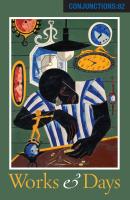Contributor History
- Pages from My Knapsack, Online 12-23-2014
Biography
Max Frisch (1911–1991) was one of the preeminent literary voices of postwar twentieth-century Europe. In a style that mingled irony with lyricism, he explored the nature of identity and issues of moral responsibility, both individual and collective. Born in Zürich, he traveled widely, living in Switzerland, Rome, Berlin, and New York. His novels include I’m Not Stiller (1954), Homo Faber (1957), and Man in the Holocene (1980), which The New York Times called “a luminous parable” and “a masterpiece.” His plays include The Firebugs (1958) and Andorra (1961). Max Frisch’s journal from his military service in the Swiss Army, Blätter aus dem Brotsack or Pages from My Knapsack (1940), was his first published book of nonfiction. Two other journals, Sketchbook 1946–1949 and Sketchbook 1964–1971, appeared during his lifetime.
